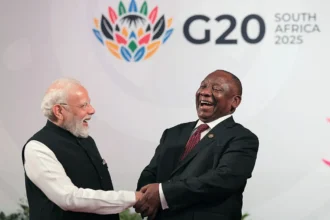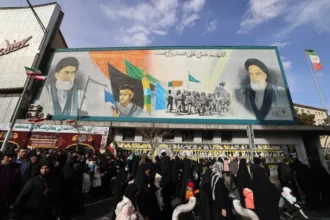The debate over whether Palestine is a state is one of the most complex and politically charged questions in modern international relations. While over 140 of the United Nations’ 193 member states have formally recognized Palestine as a sovereign nation, the path to universally accepted statehood remains blocked by political divisions, legal complexities, and the ongoing Israeli–Palestinian conflict.
What Defines a State in International Law?
The 1933 Montevideo Convention outlines four key criteria for statehood under international law:
- A permanent population – a defined group of people who identify as belonging to the state.
- A defined territory – land with recognized (or at least claimed) borders.
- A government – a functioning political authority over that territory and population.
- Capacity to enter into relations with other states – the ability to sign treaties, join international organizations, and interact diplomatically.
By these measures, Palestine arguably meets the basic requirements: it has a defined population, a claimed territory (the West Bank, Gaza, and East Jerusalem), a governing body (the Palestinian Authority in the West Bank and Hamas in Gaza), and engages in diplomacy. However, the last two points are contested due to the lack of full control over its borders, airspace, and security, much of which is under Israeli control.
Recognition vs. Reality
Recognition of statehood is a political act, not a purely legal one. Even if a majority of countries acknowledge Palestine as a state, this does not automatically grant it full membership in the United Nations or compel non-recognizing nations to treat it as such.
In 2012, the UN General Assembly voted to grant Palestine “non-member observer state” status—similar to the Vatican. This was a symbolic diplomatic victory but fell short of full UN membership, which requires Security Council approval. The United States, a permanent member of the Security Council, has consistently opposed Palestinian statehood outside the framework of a negotiated peace deal with Israel, using its veto power to block such measures.
Why Some Countries Recognize Palestine
Many countries in Asia, Africa, and Latin America recognize Palestine as part of their support for self-determination and opposition to what they see as Israel’s occupation of Palestinian territories. Recognition is often framed as a moral and political statement—an assertion that Palestinians have the right to an independent homeland.
In Europe, recognition is more divided. Countries such as Sweden, Ireland, and Spain have moved toward recognition, arguing it supports peace efforts. Others, including Germany, France, and the UK, say recognition should follow a negotiated settlement.
Why Some Countries Don’t
The United States, Canada, Australia, Japan, and most Western European nations have withheld formal recognition, arguing that Palestinian statehood should emerge from direct negotiations with Israel, not unilateral moves. Critics of premature recognition warn it could embolden hardline positions and undermine peace talks.
Implications if More Countries Recognize Palestine
If a wave of new recognitions occurs—especially among influential Western nations—it could significantly shift the diplomatic balance. Increased recognition could strengthen Palestine’s claims in international courts, open new trade and aid opportunities, and put political pressure on Israel.
However, without practical sovereignty—control over borders, security, and resources—recognition alone would not resolve the underlying conflict. It might even harden positions on both sides, making compromise more difficult.
The Road Ahead
Palestinian statehood remains both a legal and political challenge. The symbolic power of recognition is undeniable, but without a comprehensive peace deal addressing borders, security, Jerusalem, and refugees, the question will continue to hang in diplomatic limbo.
Whether Palestine becomes a universally recognized state may ultimately depend less on how many flags it has in foreign embassies and more on the resolution of the decades-long conflict that continues to shape its reality on the ground.














